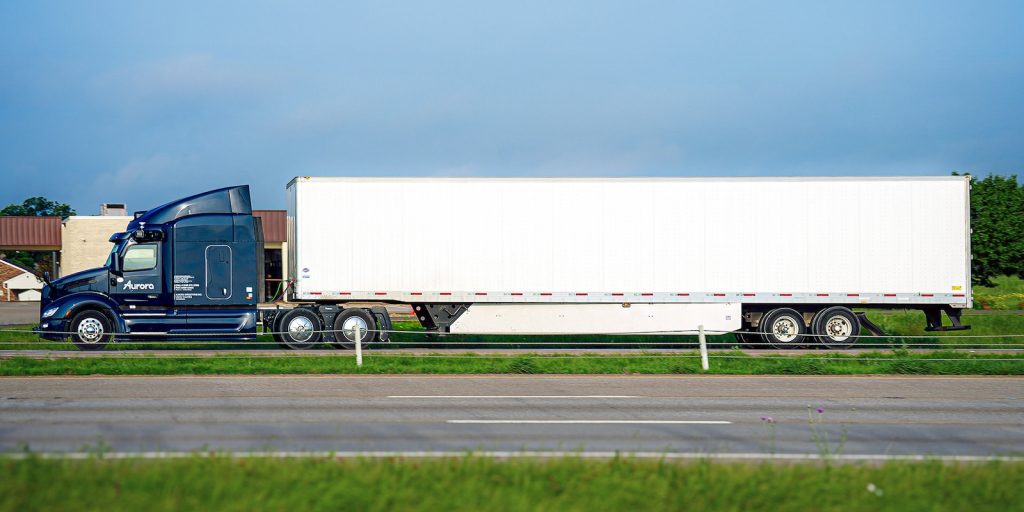
Texas technology firm Aurora made headlines earlier this month by launching the first fully autonomous freight service in the US – but those celebrations may have been premature. According to the company’s CEO, human operators are back in the saddle.
In a blog post written by Aurora CEO, Chris Urmson, the company said the decision to put a human operator back behind the wheel of its tech-boosted Peterbilt Class 8 semi trucks was a result of pressure from the truck manufacturer’s parent company PACCAR. PACCAR apparently wanted a human in place, “because of certain prototype parts in their base vehicle platform.”
In Urmson’s own words:
A core part of our strategy has always been building a strong ecosystem of partners across the industry — from OEMs to logistics providers to regulators. These partnerships are essential to delivering a safe, scalable, commercial product.
One of those partners, PACCAR, requested we have a person in the driver’s seat, because of certain prototype parts in their base vehicle platform. We are confident this is not required to operate the truck safely based on the exhaustive testing (covering nearly 10,000 requirements and 2.7 million tests) and analysis that populates our safety case. PACCAR is a long-time partner and, after much consideration, we respected their request and are moving the observer, who had been riding in the back of some of our trips, from the back seat to the front seat. This observer will not operate the vehicle — the Aurora Driver will continue to be fully responsible for all driving tasks, including pulling over to a safe location if required. And we’ve shown we can do that safely, with the Aurora Driver operating for more than 6,000 driverless miles along our commercial launch lane between Dallas and Houston. This change has no impact on our near, mid and long-term development plans.
CHRIS URMSON, AURORA CEO
The re-introduction of human operators comes just as Texas State lawmakers are reviewing House Bill 4402 – a proposed law just passed out of the Texas House Committee on Transportation and would require trained human operators in autonomous vehicles, effectively banning fully self driving semi trucks in Texas.
“Requiring a human operator in a driverless truck isn’t unreasonable — it’s common sense,” says Brent Taylor, President of Teamsters Joint Council 80 in Dallas, Texas, and Southern Region International Vice President. Adding, that, “there are hundreds of thousands of Texans who turn a key for a living. They have mortgages, medical bills, and families to support. We can’t let out-of-state billionaires steal their jobs with reckless automation. We must protect their livelihoods by passing this critical bill into law.”
The Teamsters have supported a number of bills nationwide that require human operators in autonomous commercial vehicles, including two such bills that have passed both houses in California, only to be vetoed by Governor Gavin Newsom.
Electrek’s Take

A national driver and equipment operator shortage continues to make headlines, but companies would rather avoid talking about operator pay plummeting – opting, instead, to invest big money into self-driving and autonomous technology to bridge the gap.
I remain convinced that we could solve that operator shortage by taking some of the billions being funneled into “self driving” and spent it on operators’ salaries. Heck, while operator salaries have increased about 24% since 1978, the CEOs at the truck and trucking companies have seen their pay soar dramatically, increasing over 1,000% in the same period. (!) You can’t say that last bit too loud, though: those guys are president now.
Go get ’em, Texas.
SOURCE | IMAGES: Aurora.

Your personalized solar quotes are easy to compare online and you’ll get access to unbiased Energy Advisors to help you every step of the way. The best part? No one will call you until after you’ve elected to move forward. Get started, hassle-free, by clicking here.
FTC: We use income earning auto affiliate links. More.
electrek.co
#Humans #step #Texas #steps #autonomous #trucking





